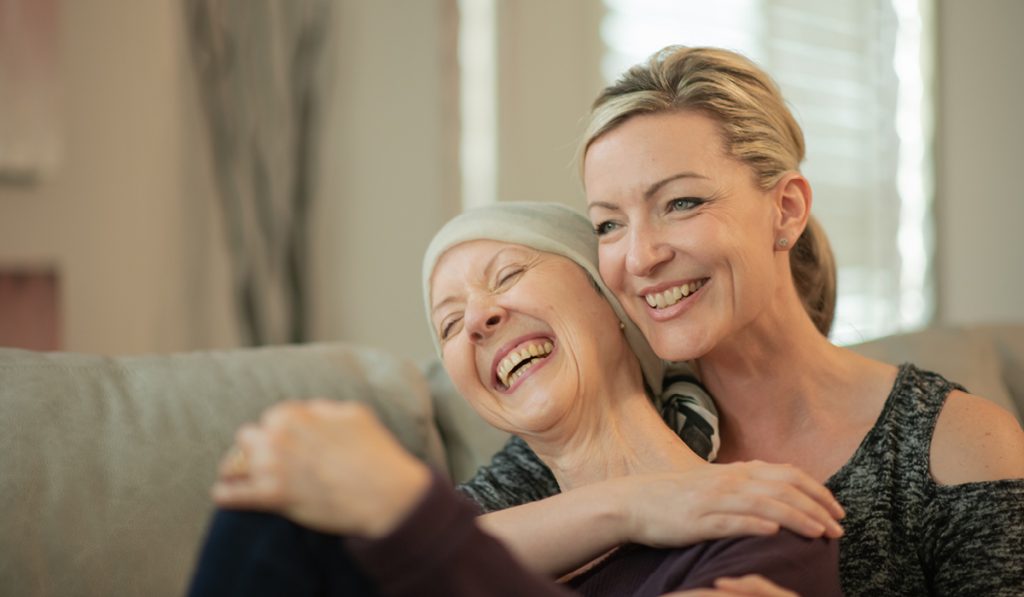National Caregiver Month: Tips for Reducing Caregiver Stress

While the needs of a cancer patient are the primary focus for everyone involved, we often overlook the secondary toll of a diagnosis: the impact it can have in the lives of those caring for the patient and causing caregiver stress. From answering the call for the patient’s daily needs to worrying that they’re doing enough or saying the right things, caregivers experience their own levels of stress that can affect their physical and mental health.
With these tips, we hope caregivers will identify some easy ways to care for themselves, which will allow them to reduce caregiver stress and be able to provide better care to their loved one.
- Set Limits – From the start, be upfront about how much you can take and what you, and your loved one, can expect from you. Communicating your needs and limitations from the beginning will help set boundaries, and allow for opportunities for others to step in as needed.
- Find a Support System – From one-on-one therapy to group counseling, there are many kinds of support programs specifically designed for caregivers. CARTI offers a weekly online support group – Caregiver Coffee Hour – that explores different topics related to being a caregiver. Our social work team leads these weekly discussions, which will be based on the American Cancer Society’s Caregiver Resource Guide.
- Take Time for Yourself – No one can be a caregiver 24 hours a day, 7 days a week. Whether it’s having lunch with a close friend, working out or watching a funny movie, finding time to do an activity you enjoy can give you the mental and emotional boost you need.
- Practice Self Care – While it’s important for you to focus primarily on the patient’s health and well-being, it’s also important to remember and practice the most basic self care tips.
- Eat Well – Choose foods and beverages in amounts that help you reach a healthy weight and maintain it. For some healthy recipe options, watch our In the Kitchen with Coby cooking segments.
- Limit Alcohol Use – In addition to being a natural depressant, which isn’t helpful when going through the trials of a cancer diagnosis, alcohol can increase your risk of developing several types of cancer, including breast, mouth, throat, larynx, esophagus, liver, colon and rectum.
- Exercise – Limit sedentary behavior such as sitting, lying down, watching television or other forms of screen-based entertainment.
- Stay Away from Tobacco – Not only is this recommended for your own health and to reduce your risk of developing lung cancer, but it’s also helpful to the patient because they do not need to be exposed to secondhand smoke emitted by a cigarette. Exposure to any form of cigarette smoke can be life-threatening to cancer survivors.
- Get Your Cancer Screening Tests – Remember to stay on top of your routine medical check-ups, which can include screenings for cancers that you may be at risk of developing.
- Seek Care When Needed – Caring for a loved one with cancer can be overwhelming. If at any time you feel depressed or physically sick, seek the care of a medical professional.
At the end of the day, remember your own health and safety must become a priority if you want to keep helping your loved ones.





